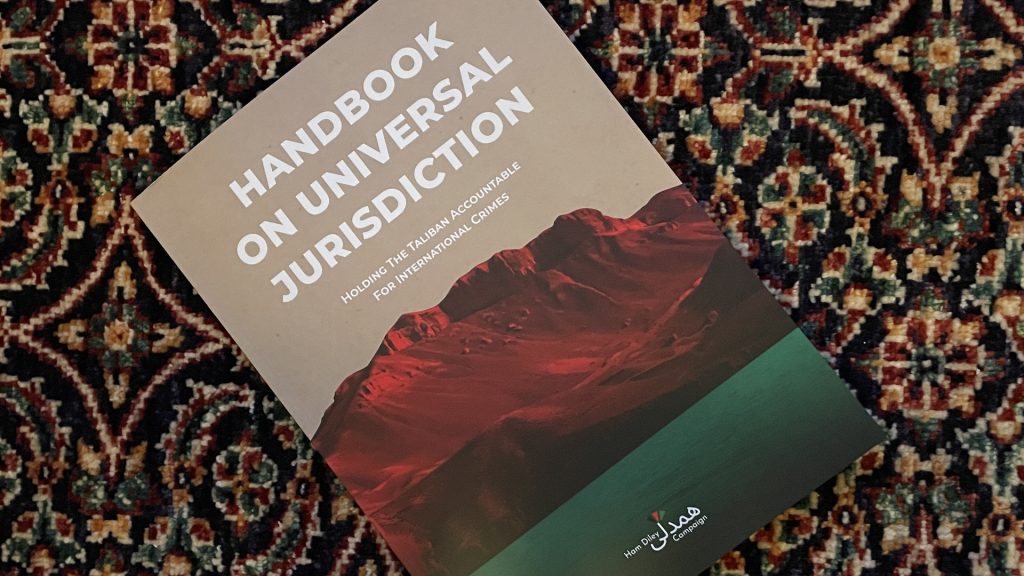A Global Path to Justice
Exploring Universal Jurisdiction as a Tool for Accountability for Atrocity Crimes in Afghanistan
Universal jurisdiction is one pathway for accountability whereby the legal systems in many parts of the world allow for the investigation and prosecution of one or more atrocity crimes regardless of where the crime in question took place, the nationality of the alleged perpetrator(s) and of the victim-survivor(s).
Through the principle of universal jurisdiction, there may therefore be potential of holding members of the Taliban accountable for atrocity crimes in many courts across the world. While this pathway is not without its challenges, it is still one worth exploring and advocating for. It is hoped that this Handbook can build momentum for universal jurisdiction case-building across the world.
A digital copy of the Handbook is available here:

Methodology
While the person subject to the complaint was tipped off and left the country urgently, diaspora communities wished to know what could be possible in the future. The Ham Diley Campaign has involved diaspora communities in the planning and production of the Handbook to ensure that ownership remains with diaspora communities, many of whom are victim-survivors. An approach to criminal justice which centres on victim-survivors is something which the Ham Diley Campaign embraces and views as a key element of accountability.
The Handbook was commissioned by diaspora communities in Europe and North America as a way to obtain more information about the potential of universal jurisdiction. This was in the context of the official visit of a Taliban delegation to Norway in 2022 which generated a criminal complaint against one of the senior delegates, brother of the leader of the infamous Haqqani Network.
Structure of the Handbook
Part 1
Provides an overview of the universal jurisdiction principle, such as its legal bases and other related and important aspects, such as evidence. This Part of the Handbook is recommended for readers without or with little prior knowledge of law and in particular, of universal jurisdiction.
Part 2
Contains information about the situation in Afghanistan, not solely since the Taliban’s return but also during their first reign of terror in the 1990s and in between their return to power in 2021. This includes examples of international crimes and specific focus upon particular situations, such as the destruction of cultural property and the treatment of women and girls. This Part is intended for readers with little knowledge about the decades of conflict in Afghanistan.
Part 3
Concludes by providing examples of six legal systems that provide for universal jurisdiction: Australia, Germany, the Netherlands, New Zealand, Norway, the United Kingdom. These jurisdictions were selected as examples only and are in no way an exhaustive list. Each country-specific annex provides a snapshot of the relevant aspects of the legal system to give a sense of its potential and challenges. Readers may be interested in one or more of these, and the whole of Part 3 provides a useful comparison of some common challenges facing those wishing to pursue universal jurisdiction in different legal systems.
Dissemination
The Handbook has been launched in Australia and Canada. We welcome suggestions for events to disseminate the Handbook in other countries and regions as well.
Please get in touch with us via email to discuss ideas for further dissemination. We would also be happy to arrange for printing of physical copies of the Handbook provided that such request is accompanied by external funding. You can find our email address under the Contact page.

